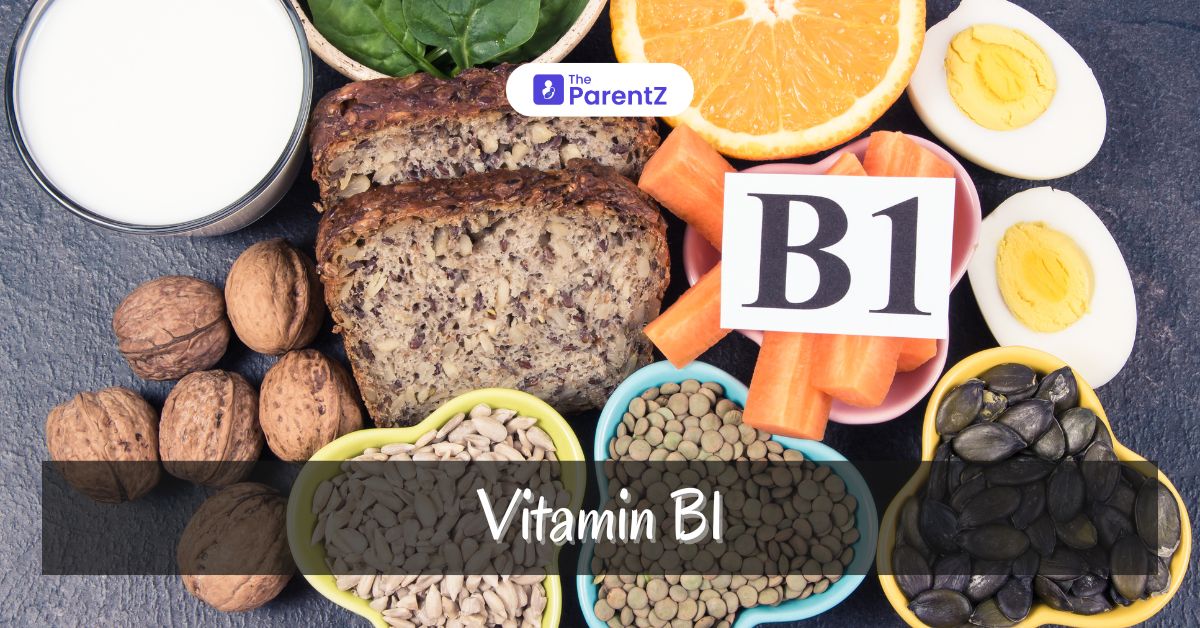What is Vitamin B1?
Vitamin B1 is also known as thiamine. Thiamine is a water-soluble vitamin essential for various metabolic processes and energy production in the body. Thiamine plays a fundamental role in converting carbohydrates into energy and aids in the proper functioning of the nervous system, muscles, and heart. It also supports growth, development, and overall cellular health.
Why does your child need Vitamin B1?
Children require Vitamin B1 for several reasons. It is essential for energy metabolism and ensures that carbohydrates from the food are converted into usable energy for various bodily functions and activities. It is also the vitamin that supports the healthy functioning of the nervous system, promoting proper cognitive development and nerve signal transmission. Additionally, it plays a role in maintaining cardiovascular health and muscle function, crucial for an active and growing child.
What are the sources of Vitamin B1?
Vitamin B1 can be found in a variety of foods, both animal and plant-based. Incorporating these foods into your child’s diet can help ensure an adequate intake of Vitamin B1.
Animal sources include:
- Pork
- Poultry
- Fish
- Dairy products
Plant-based sources include:
- Whole grains like wheat, rice, oats
- Legumes such as beans and lentils
- Nuts
- Seeds
- Fortified cereals.
How much Vitamin B1 does your child need?
The amount of Vitamin B1 intake recommended in a day for children varies depending on their age. According to the National Institutes of Health (NIH), the following are the required quantity per day:
- 0-6 months: 0.2 milligrams (mg) per day
- 7-12 months: 0.3 mg per day.
- 1-3 years: 0.5 mg per day
- 4-8 years: 0.6 mg per day
- 9–13 years: 0.9 mg per day
What should I know as a parent regarding Vitamin B1?
- It falls on the parents to make sure that their child receives an adequate intake of Vitamin B1 through a balanced diet.
- Including a variety of foods rich in Vitamin B1 can help meet their daily requirements and support their overall health and well-being.
- Encouraging the consumption of whole grains, lean meats, dairy products, legumes, nuts, and seeds can help provide sufficient amounts of this vital nutrient.
- It is also crucial to be aware of potential deficiencies in children who consume highly processed or refined foods, as these may lack essential vitamins and minerals, including Vitamin B1.





Be the first one to comment on this story.